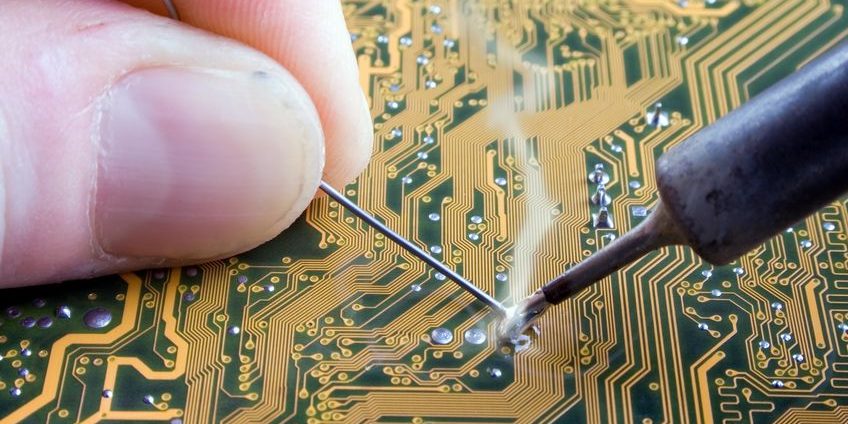For many years, lead solder was the only type of solder available for connecting electronic components. But in 2006, all of that changed when the European Union (EU) issued a Restriction of Hazardous Substances (RoHS) directive, banning lead solder in electronics manufacturing. While the directive was enforced in Europe, American industries have begun embracing these regulations and even going as far as giving tax breaks to companies that reduce their use of lead-based solder.
The primary purpose behind the regulations is to reduce lead in landfills and other disposal areas and prevent the health problems associated with the substance. And with the growing demand for green electronics, electronics manufacturers have embraced practices that use less energy, reduce carbon emissions, and use non-toxic and eco-friendly materials.
This article will discuss what lead-free solder is, why we need it, and why you should get your manufacturing staff trained in lead-free hand soldering.
Reasons Why Lead Solder Was The Preferred Solder Type
Lead solder is an alloy commonly made up of 63% tin and 37% lead. It is sometimes referred to as Pb-Sn, its chemical formula.
Lead solder was the preferred solder type, and for some hobby solderers and high-reliability manufacturers, it still is. Lead solder was typically used because of its beneficial properties for manufacturing electronic devices, such as its ability to cool more slowly than other metals and wet joints well. These properties result in a better and stronger connection of components to the board.
Lead solder also has a lower melting point compared to lead-free alternatives. This means that this type of solder has a lower risk of damaging electronic components due to extreme heat. This is the reason why they are still the most preferred solder type by hobbyists.
Lead-Free Solder And The Reasons For The Transition
Though lead solders have many advantages in manufacturing electronics, the environmental and health problems they pose are bad enough that it forces the electronics industry to look for safer alternatives, like lead-free solder.
Lead-free solder can include various chemical elements such as tin, copper, zinc, manganese, silver, or gold, but the most commonly used is tin, silver, and copper, often abbreviated as SAC, derived from the first letters of their symbols (Sn for Tin, Ag for Silver, and Cu for Copper.)
As mentioned earlier, working with lead solder is harmful not only to the environment but also to humans. Electronics assemblers could suffer from lead poisoning. Lead-free solders eliminate that problem by removing the dangerous element from the solder.
Lead-Free Solder’s Disadvantages
Unfortunately, lead-free solders have some drawbacks, like unstable melting temperatures, leading to defects in manufacturing circuit boards and electronic components, which is why electronics manufacturing cannot be 100% lead-free for now. There are specific applications that require lead solders, such as the manufacture of aerospace electronics and ceramic capacitors. Because of this, the EU has also granted a few exceptions to its lead-free directive to accommodate specific applications using lead solders.
But despite some flaws found in lead-free solders, most sectors that use solder in commercial quantities are more than likely to shift to lead-free soldering soon if they haven’t done so already. Consider having your hand soldering operators and inspectors undergo lead-free solder training, not just for the benefit of the company, but also for their professional development.
Conclusion
As world industries continue to adopt green practices, the complete transition from lead to lead-free solder is inevitable. If your company has started to incorporate a lead-free process in your manufacturing, now might be the best time to have your assembly staff trained and certified in lead-free hand soldering. Doing so will help you introduce lead-free high-quality products and services and help you stay compliant with RoHS guidelines,
Want to learn more about our lead-free solder training courses? Contact Blackfox today at (888) 837-9959 or email us at [email protected].






